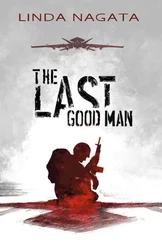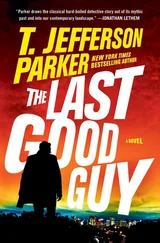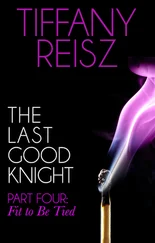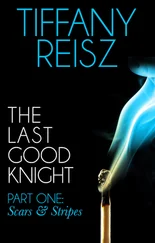Even though the two brothers had nothing in common, Harry took his role as older brother very seriously. At the age-appropriate times, he introduced Dex to beer, porn, cars, and girls. Harry always laughed off Dex’s oddball ways: “He’ll grow out of it.”
The folks — conservative, Reagan-voting California Republicans — put all their faith in Harry making good, keeping up the legacy of going to Stanford, following in his father’s large CEO footprints. His sister, Janey, predictably, wanted to be a teacher. Only to Dex did she confide about her secret life of partying, drugs, and sex, her voice raspy from chain-smoking cigarettes.
It was a prideful shock when Harry enlisted, though not unexpected. Men were supposed to be men in his family. All through their childhood, Dex’s father had been an avid bird hunter. Along with his buddies, he had taken a young Harry out fall mornings toward Lancaster and Bakersfield to go shooting with his friends. Many of the male relatives in the family had done military service; it was considered a noble sacrifice. Dex hated guns, hated shooting, hated dead birds and war. In every way that mattered, he was a grave disappointment to his father.
Harry graduated summa cum laude and went straight into basic training just as Dex started playing in bands, skipping classes, and dropping acid. Coming home stoned one night, he overheard his father telling his poker friends about his “loser son.”
After Harry was reported killed by friendly fire, his father told the preacher, “I’m not coming back to church. God took the wrong one.”
Dex left home after that. No matter how famous, no matter how rich, he would always be just a slacker to his dad, a guitar player, the one who didn’t die. Dex didn’t contact him when his father’s company was accused of being involved in a plot with a pharma conglomerate to peddle substandard drugs to the third world. Neither did he contact him when it was discovered the firm had been involved in a cover-up of the effects of depleted uranium relating to Gulf War syndrome. He did not contact him after his father’s company was indicted or after it collapsed, or after his father’s high blood pressure diagnosis, or after his first stroke, or the second. None of it brought Dex home. He simply had his manager, Lori, write out the checks, both for his parents’ retirement home (they had lost all their money in attorney’s fees) and for Janey’s rehab, divorce, and monthly support for her and his little niece. He fantasized about telling his father that at least the money that they were now living off was clean. He didn’t tell the old man off because he loved his mom and Janey.
He missed his big brother something terrible. He knew his life would have gone better in all kinds of indefinable ways if Harry had been there by his side. Harry loved Dex, loved his music and supported his making it. He was the definition of what family should mean, a tie where blood was only the beginning. Some of the soldiers in Harry’s squad listened to Dex’s first tapes while deployed in Kuwait, and Harry burst with pride for his baby brother. He understood that everyone had to play the hand that he was dealt in life.
In the years that followed, Dex began to be haunted. He felt guilty that he had not been brave enough to enlist and go fight at his brother’s side. He had the grandiose fantasy that he might have saved him; more probably Harry would have been saved while looking after his inept little brother. Harry never would have allowed something paltry like death to interfere with that sacred duty. But the truth was that, even back then, Dex could think of nothing more devastating than making the accommodation in his soul that would have allowed him to kill another human being. Not even if the act was removed by advanced weapons to the level of a fancy video game. Becoming a soldier would have killed the musician in him. How did Harry — a better man than he was — make that accommodation in his own soul? They never had a chance to discuss it.
But Dex had so wanted to be brave.
Later he went to the battlefields of Iraq and Afghanistan (because battlefields, like concert stadiums, were interchangeable, he suspected), not to fight but to play his music, not in some dippy, ’60s-style, peace, love, putting-flowers-in-gun-barrels kind of way, but in a strong, force-for-good way. He was brave in the manner possible for him. Every single soldier he played to was Harry. Every single soldier he played to was not .
Dex knew music, not guns, changed hearts and minds. He experienced it on tour, the unity of thousands at concerts. Power comes in all forms; the old man could never get his head around that one.
* * *
Rifle safely returned to its place, hours later Ann woke up on a bench by the kitchen. She found Richard asleep on the beach. She stroked the hair plastered to his forehead. In his sleep he looked as content as when they first met. Where had that Richard gone? For that matter, where had the old Ann gone? She lay down beside him. On the wind, she thought she heard voices arguing as she fell asleep.
A roaring woke her. The morning sky was a bright, glowing yellow. The silver ocean worried its way back and forth along the beachfront. Ann sat up, alone, sand in her hair, shivering.
Wende stood at the dock with a small battered valise — the same one that Cooked had carried back from their trip to town. Although Ann had grown fond of the girl and was sorry she was leaving, there was a part of her that was also glad. Wende’s youth exhausted her. She didn’t like her part serving as cautionary tale. Ann was tired of the girl’s lording it over the motu with her body; tired of the haunted, panting men; tired of the bikini and breasts and the promise implied by the dazzling belly button ring that could return at any time. WILD. Poor girl didn’t have the first clue. Wild could be in the heart of the most buttoned-down, burned-out lawyer. Wild was the ability to drop one life and pick up another. Wild was refusing the scratchy dry surface of things and digging into the rich loamy depths. Ann was searching for a wild far deeper and grander than anything offered up so far. She had tried to rise to the occasion, had borrowed the skimpy two-piece bathing suit to jazz up her marriage, but it wasn’t her, and she knew it. Then she remembered her half tattoo. She walked to the dock and pointed to her thigh.
“You can’t leave. You didn’t finish this.”
Wende shrugged. “You never wanted it.”
“Now what am I supposed to do?”
“Dex proposed last night — you have to come to the wedding. Call me when you get back to LA, and I’ll finish it.”
Her words and her expression were at a disconnect.
“You don’t love him.”
Wende frowned. “It’s time to grow up.”
Ann sighed. Had this whole thing with Cooked been an act to get what she wanted from Dex? Had sweet little Wende played them all? Impossible to save another even if it was clear she was throwing away her dreams, however misguided. The girl had wanted to save sharks.
“What’s with Cooked?”
He was hunched over in the gloom of a palm tree, dark and glowering, one of his eyes black and swollen shut. Titi refused to let him in the kitchen while she prepared breakfast. Later, Ann found out Titi was the one who had given him the black eye, giving the lie to the Polynesian no-jealousy policy. The human heart guided itself. Was the slickness on Cooked’s cheeks from tears? He bolted from his place and ran to the water, holding a bucket.
“Go away,” Wende yelled into the wind, but Cooked ran into the water and threw a bouillabaisse of cut fish around him. He raked his fingernails down his chest, drawing streaks of blood. Wende screamed. Richard and Loren jumped into the water and dragged the boy out.
Читать дальше












